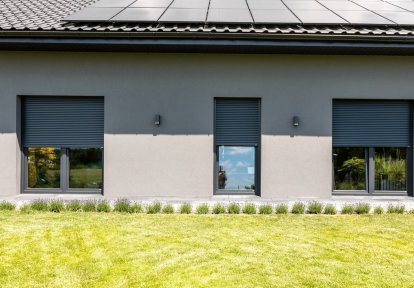The advantages of standard window sizes
Standard window sizes are mass-produced and designed to fit most modern properties, making them a convenient and cost-effective solution. They are widely available and typically come in common dimensions that suit new-build homes and extensions. The main benefit of picking standard-sized windows is their affordability, as they are produced in bulk, reducing manufacturing costs. Additionally, they are often quicker to source and install, making them a practical option for projects with tight deadlines. However, one drawback is that standard-sized windows may not always be suitable for older or uniquely designed properties, where existing openings do not match the available dimensions. In such cases, modifications to the building structure may be required, increasing the overall cost of installation.
The benefits of made-to-measure windows
For homeowners seeking a customised solution, made-to-measure windows offer flexibility and precision. Unlike standard-sized options, these windows are specifically crafted to fit the exact dimensions of an existing window opening, eliminating the need for adjustments to the surrounding structure. This makes them ideal for period properties, bespoke architectural designs, or buildings with irregular window openings. Another advantage is improved energy efficiency—custom-sized windows provide a perfect fit, reducing gaps where heat can escape or draughts can enter. While made-to-measure windows are generally more expensive than standard options due to the bespoke manufacturing process, they often lead to better long-term savings on energy bills and maintenance costs.

Aesthetic considerations and architectural integrity
Choosing between made-to-measure windows and standard window sizes is not just about functionality—it also impacts the overall appearance of a building. In historical or architecturally unique properties, standard-sized windows can sometimes disrupt the original design, whereas custom-made windows can preserve or enhance the intended aesthetic. Homeowners looking for a specific material, frame style, or glazing option may find that a window manufacture company specialising in bespoke designs can provide more choices. On the other hand, for modern homes built to accommodate standard-sized windows, opting for readily available designs may ensure a sleek and uniform look while keeping costs manageable.

Cost and installation considerations
The price difference between standard window sizes and made-to-measure windows is an important factor for many homeowners. While standard windows are the more budget-friendly option, custom windows provide a tailored solution that often justifies the additional expense. Installation is another key consideration—standard windows can often be fitted quickly, especially if they align with existing openings. In contrast, made-to-measure windows may require additional lead time for manufacturing, but they can result in a smoother and more precise installation process. In cases where older buildings require structural modifications to accommodate standard sizes, the initial cost savings may be outweighed by the expense of additional building work.
Choosing the right option for your home
Deciding between made-to-measure windows and standard window sizes ultimately depends on the specific needs of the property. For homeowners prioritising cost and convenience, standard-sized windows may be the best solution, particularly for new builds and extensions where dimensions align with readily available products. However, for those looking to maintain architectural integrity, improve energy efficiency, or accommodate unique structural requirements, made-to-measure windows offer a superior fit and finish. Working with a reputable window manufacture specialist can help ensure that the chosen windows enhance both the functionality and appearance of a home, providing long-lasting benefits suited to the British and Irish climates.









